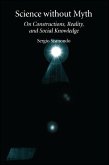Edwin Lemert investigates the possibility that a consideration of evil will provide new power to explanations of deviance. He links classic studies of witchcraft and sorcery to the wider problem of social control. The search for prototypical evil (a view that Lemert rejects) turns to an investigation of sorcery because sorcery involves selfish interest and intentions on the part of the sorcerer, who uses cryptic means to harm a victim that he/she dislikes. The author then examines comparatively the conditions that produce evil actions, and social reactions to them, in a variety of societies; and he reviews explanations that previous scholars have offered for the presence and consequences of evil. A tangential consequence of this method is that the work takes on a strong Melanesian flavor, because so many of the classic studies of sorcery were conducted in that culture area. Lemert argues that the fragmented nature of political organization, rapid shifts in political alliance, and the frequency of competitive rituals involving food combine in Melanesia to produce conditions that favor the development of whole cultures that celebrate forms of animosity and violence.








